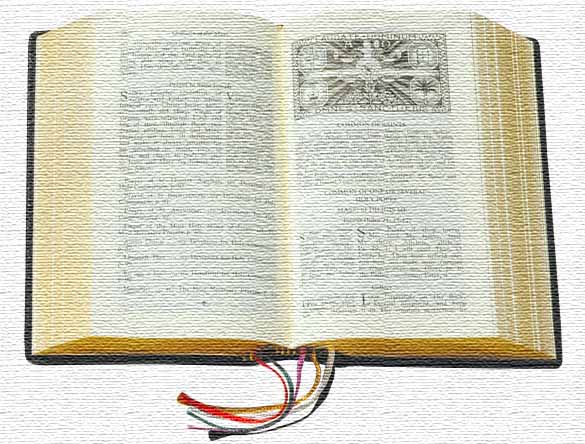 Roman Catholics know their responses by heart. They don’t hand out sheets with responses when you arrive. They don’t use power point or overhead projectors to put up responses onto a screen.
Roman Catholics know their responses by heart. They don’t hand out sheets with responses when you arrive. They don’t use power point or overhead projectors to put up responses onto a screen.
For four decades now, when someone says “The Lord be with you”, Catholics respond instinctively “And also with you.” [Many Anglicans respond “What page are we on?“] All that is about to change. The Vatican is authorising a new and different English language translation which will replace the English translation used since the ’60s.
English language texts long agreed ecumenically (ELLC/ICET) are being abandoned as the following new Catholic examples show:
The Lord be with you.
And with your spirit.
and
Let us give thanks to the Lord our God.
It is right and just.
This will also flow on to the loss of ecumenically shared musical resources. Roman Catholics will now sing:
Glory to God in the highest,
and on earth peace to people of good will.
We praise you, we bless you,
we adore you, we glorify you,
we give you thanks for your great glory,
Lord God, heavenly King,
O God, almighty Father.
Lord Jesus Christ, Only Begotten Son,
Lord God, Lamb of God,
Son of the Father,
you take away the sins of the world,
have mercy on us;
you take away the sins of the world,
receive our prayer;
you are seated at the right hand of the Father,
have mercy on us…
and
Holy, Holy, Holy Lord God of hosts.
God of power and might.
Heaven and earth are full of your glory.
Hosanna in the highest….
Comparison of current and new responses.
In the ’60s religious brothers and sisters taught their regularly Mass-attending school children the responses. The children then helped their parents Sunday by Sunday make the transition from Latin to English. This is something else. This is an attempt to move from one well-known English text to another – something Anglicans have much experience with. But there are some differences. Anglicans have a tradition of reading texts from a book. Anglicans moved from antiquated English texts to contemporary ones. And the schools are no longer taught by devoted religious sisters and brothers. And the children at Catholic schools are no longer the regular Mass attendees of the ’60s.
Anglicans, in my experience, without a text in front of them, will regularly stumble through some of our basic responses. In New Zealand, without a text, the response to “The Lord be with you” will include “And with thy spirit”, “And with your spirit”, “The Lord bless you” (the authorised response here), “And also with you”, and embarrassed mumbling or silence (not forgetting the occasional “what page are we on?”). CorE (Christmas and Easter) visitors to Anglican services are normally well welcomed – with sheets, overheads, and other aids to help them through a service. Will CorE Catholics be similarly assisted? My suspicion is they won’t be. They will be embarrassed from the opening greeting, stumbling and mumbling through a significantly different Gloria, and wishing they had sat further towards the back by the time of the readings.
My prediction: some will welcome the new texts with enthusiasm – those who have looked with envy at Anglican English quality texts; regular Sunday Catholics will faithfully accept changes, as they have all other changes handed down from above (with maybe a bit of occasional muttering); some occasional Mass attendees will continue to attend – occasionally. But for many occasional Mass attendees this will be the last straw. They will arrive at a Mass they can no longer participate in by rote, by heart. Mass attendance numbers will drop further.
Texts used here are Copyright © 2008 United States Conference of Catholic Bishops, Washington, D.C. Used with permission. All rights reserved.



